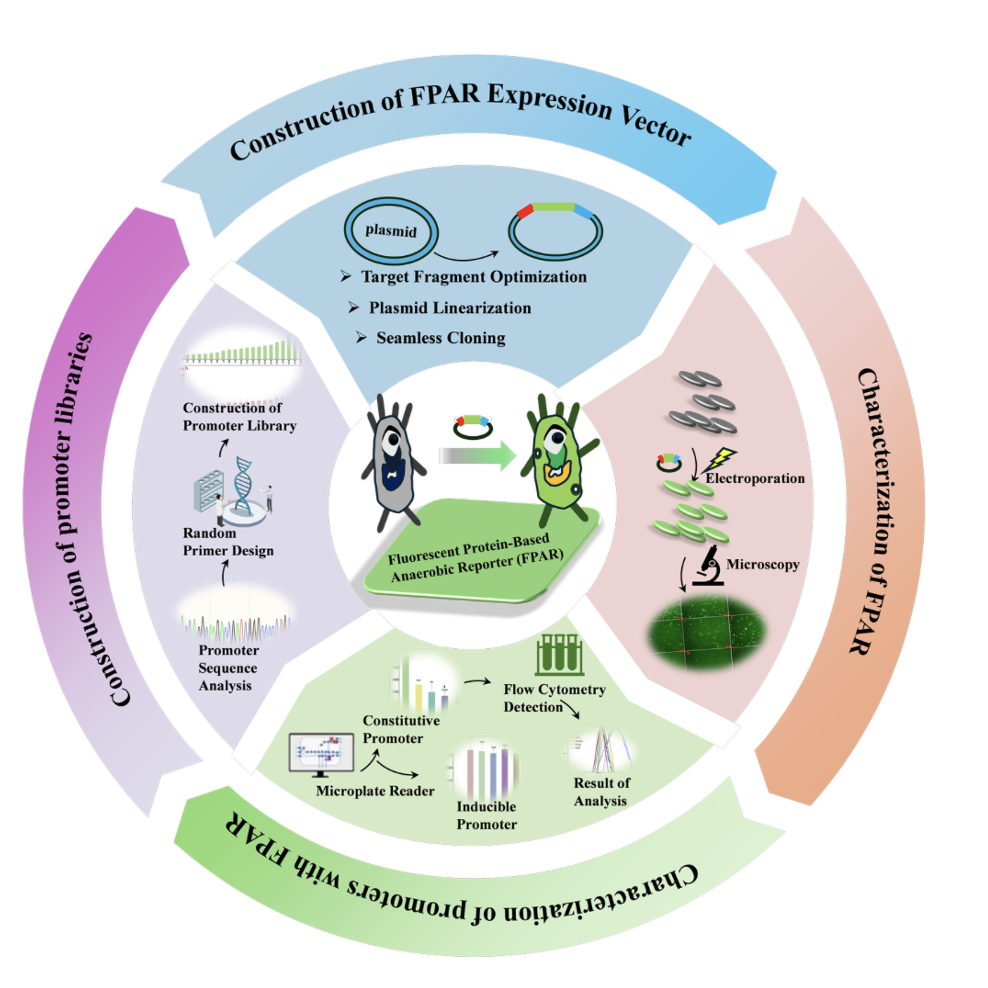https://www.cas.cn/syky/202505/t20250506_5067302.shtml
https://www.sciencedirect.com/science/article/abs/pii/S0141813025037079
Acetogenic bacteria can fix carbon dioxide and produce higher-value chemicals such as acetic acid, ethanol, and butanol under autotrophic conditions, with the dual potential of achieving emission reduction and resource recycling. At present, the bacteria have achieved large-scale production, with an annual ethanol output of more than 90,000 tons. Although the bacteria have been used in industry, its genetic and metabolic engineering tools are still imperfect, and there is a lack of fluorescent protein reporter systems (FPAR) and promoter libraries suitable for strictly anaerobic environments, which limits the development of its metabolic engineering.
In response to the above problems, the teams at the CAS Tianjin Institute of Industrial Biotechnology have developed a FPAR system for Clostridium.autoethanogenum. The system can emit light autonomously under anaerobic conditions without the addition of exogenous fluorescent ligands, simplifying the experimental process and avoiding potential cytotoxicity.
The researchers used the FPAR system to achieve real-time visual monitoring of gene expression of autoethanogenic Clostridium during syngas fermentation. Experiments showed that the system had no significant effect on bacterial growth and maintained stable performance under strict anaerobic and industrial fermentation conditions. Further, based on the FPAR system, the researchers engineered natural promoters and constructed a constitutive promoter library and an inducible promoter library containing 20 intensity gradients. The library provides a “regulatory switch” for precise regulation of metabolic pathways, allowing researchers to finely control the expression level of target genes like adjusting a “volume knob”.

